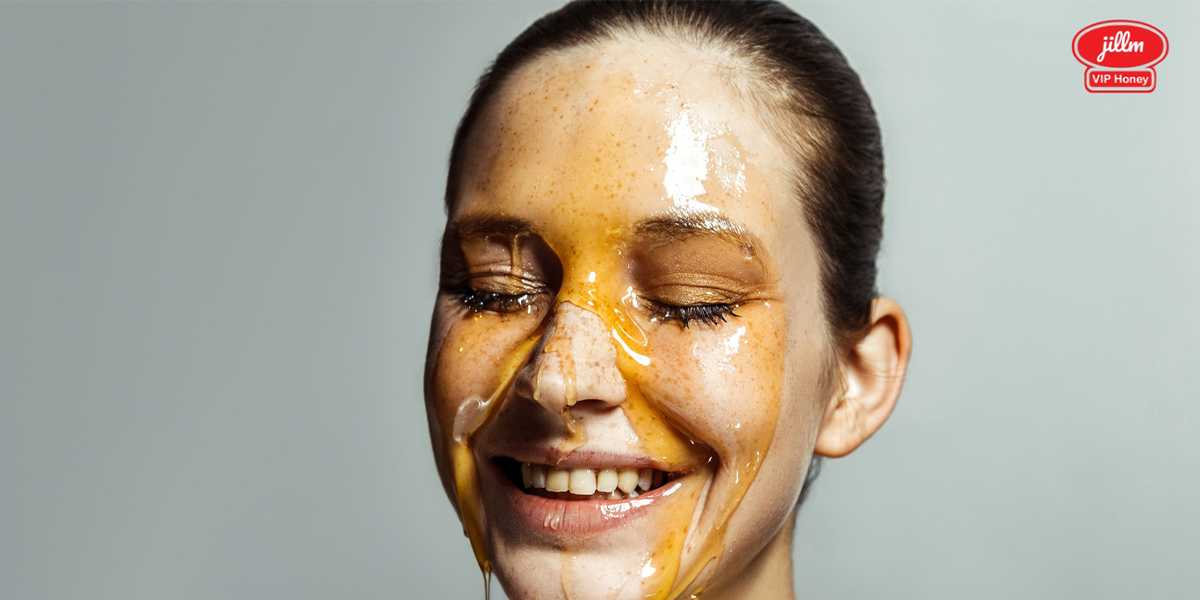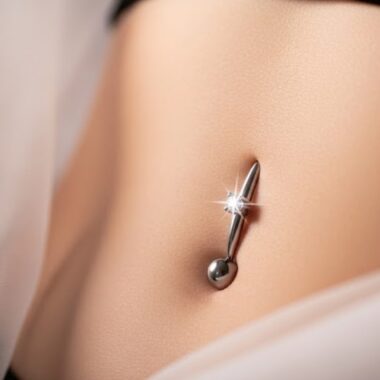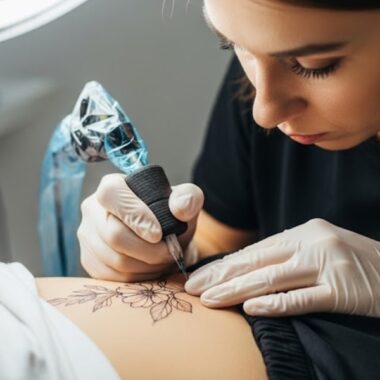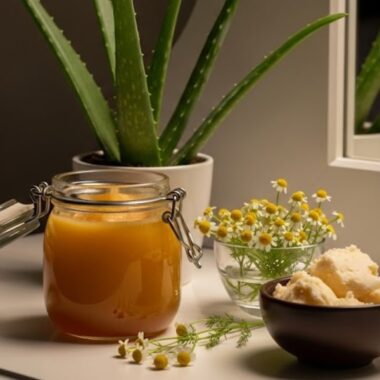Raw honey is great for face masks because it can last for years without going bad. To use it, spread a tablespoon of honey on damp skin and leave it for 20 minutes. Then, rinse it off for refreshed skin.
Honey is beneficial for face masks as it contains natural enzymes and humectants, which pull moisture into the skin. Its natural antibacterial properties help to fight acne bacteria. A honey face mask can improve skin hydration and reduce acne issues.
Our blog post will explore the amazing benefits of honey face masks.
Honey Face Mask Benefits: 7 Amazing Ways
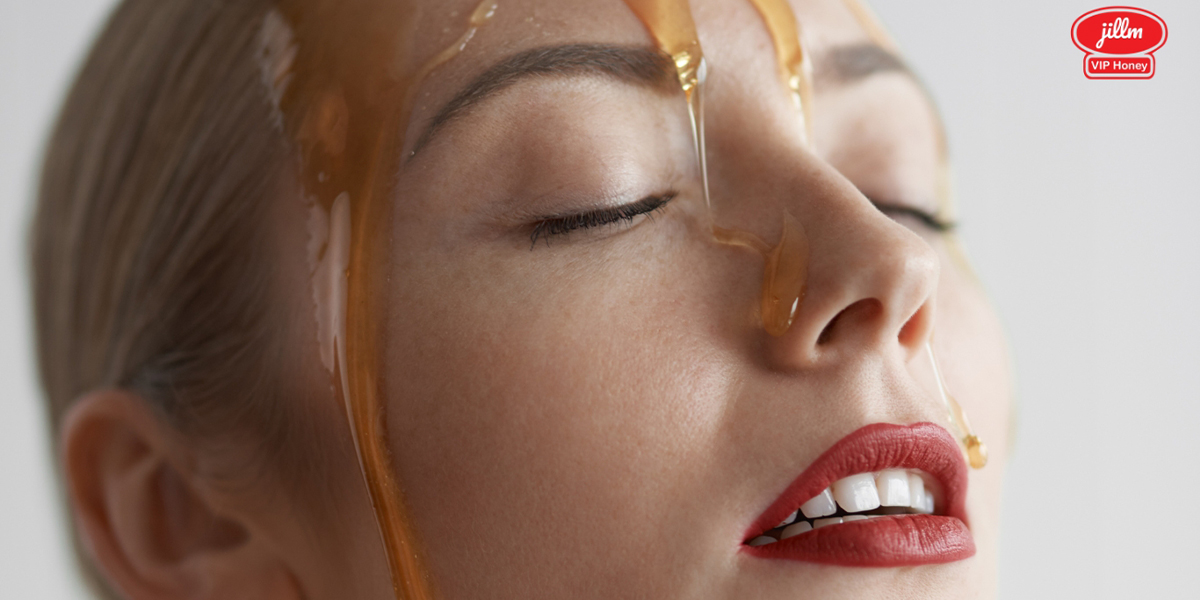
Honey has natural healing properties, making it a great skincare ingredient. Below are some key benefits of using honey on your face, especially as a face mask.
Glowing Skin
Achieving a glowing complexion is a common skincare goal, and honey can be a key ingredient in this journey. With its rich natural enzymes and nutrients, honey helps enhance your face skin’s radiance. Here’s how honey contributes to that healthy glow:
- Boosts Hydration: Honey is a natural humectant that attracts moisture to the face skin.
- Brightens Complexion: Its enzymes gently exfoliate, removing dead skin cells from the face to reveal brighter skin underneath.
- Nourishes Deeply: Packed with antioxidants, honey provides nutrients that rejuvenate and revitalize the skin.
- Balances Oil Production: It helps regulate oil levels, reducing excess shine while maintaining necessary moisture.
- Reduces Dullness: Regular use of honey can give your skin a fresh and luminous appearance by reducing dullness.
Honey as a Pore Cleanser
Your face skin will benefit from honey's cleansing properties and its sweet taste. Your pores will be kept clean with it.
Benefits of Honey as a Pore Cleanser
You can keep your face skin healthy with honey as a cleanser:
- Gentle Cleaning: Honey removes dirt and grime without stripping the skin of its natural oils.
- Unclogs Pores: Helps to clear out impurities, reducing the chance of blackheads.
- Natural Antibacterial Properties: Fights bacteria that can cause acne and breakouts.
- Soothes Skin: It reduces redness, soothes irritated skin, and helps to heal sunburns.
Honey as a Natural Moisturizer
Natural moisturizer honey keeps your face soft and hydrated. It can be used as a sweet treat.
Benefits of Honey as a Natural Moisturizer
Your face can benefit from the moisture and care you get from honey:
- Hydration Retention: The honey acts as a humectant, drawing moisture from the air and locking it in.
- Softens Skin: Regular use of this product can make your skin smoother and softer.
- Prevents Dryness: Helps to keep your skin from becoming dry and flaky.
- Nourishing Properties: Packed with vitamins and minerals that nourish your skin deeply.
It's easy and effective to moisturize and nourish your skin with honey.
Honey as an Exfoliator
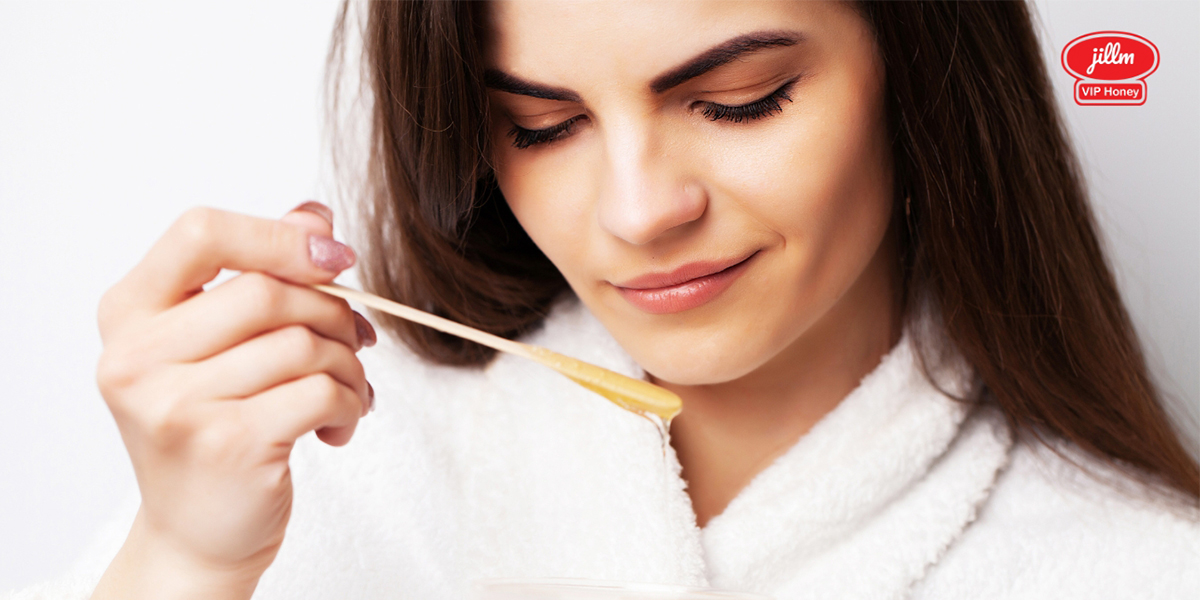
You can use honey as a gentle exfoliator to care for your face, not just for sweetening your tea. Its natural enzymes remove old skin cells, revealing a fresh, smooth surface.
Benefits of Honey as an Exfoliator
Using honey as an exfoliant offers several skin-enhancing benefits:
- Gentle Exfoliation: A gentle exfoliation with honey's enzymes does not irritate your face skin.
- Smoother Texture: Your face will feel smoother, even if it is used regularly.
- Brightens Complexion: By removing dull skin, honey helps your skin glow.
- Prevents Clogged Pores: Keeps your pores clean, reducing the risk of breakouts.
Honey for Scar Fading
Honey is not only tasty but also a helpful ally in reducing scars and dark spots on the face. Its natural properties make it effective in lightening skin imperfections.
Benefits of Honey for Scar Fading
Using honey can help improve the appearance of your skin in several ways:
- Natural Bleaching Effects: Honey helps lighten scars and dark spots gradually.
- Promotes Healing: Encourages skin regeneration, speeding up the healing process.
- Evens Skin Tone: Regular use can lead to a more uniform and balanced complexion.
- Moisturizes and Softens: Keeps skin hydrated, aiding in the reduction of scar visibility.
Honey for Anti-Aging
Honey is not only delicious but also packed with antioxidants, which help keep skin youthful. These natural compounds work to protect and rejuvenate skin.
Benefits of Honey for Anti-Aging
Using honey can offer several advantages in fighting the signs of aging:
- Rich in Antioxidants: Reduces free radical damage that can damage skin cells.
- Reduces Fine Lines: Regular use can lessen the appearance of fine lines and wrinkles.
- Boosts Skin Elasticity: Encourages firmer and more resilient skin.
- Promotes a Youthful Glow: Helps maintain a radiant and youthful complexion.
Sunburn Relief
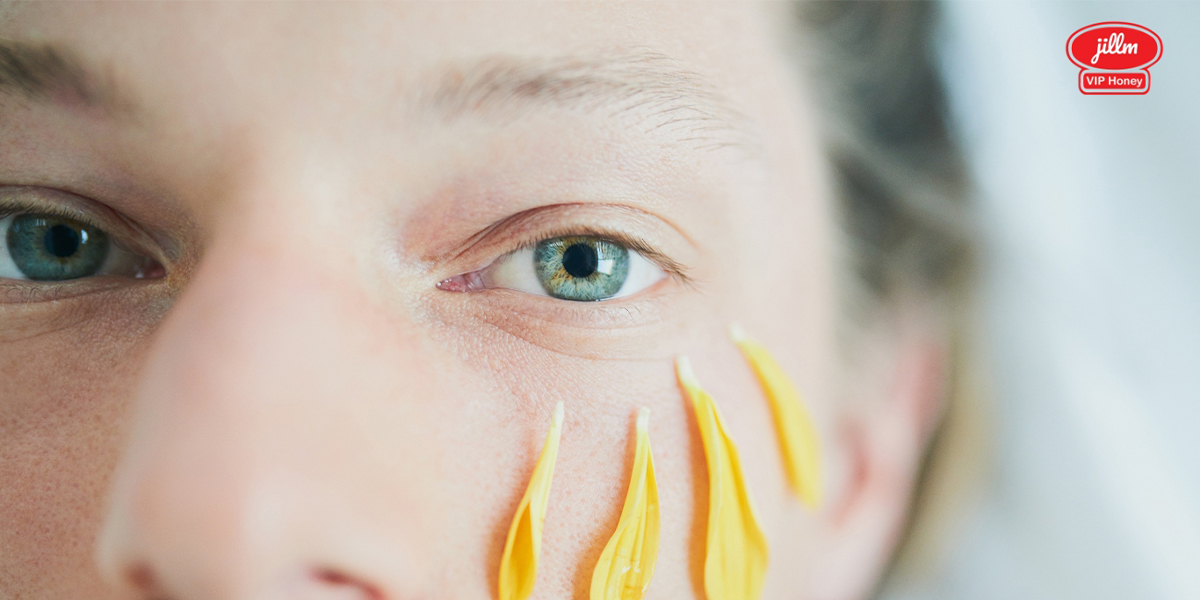
A sunburn can cause both pain and damage to your skin. Honey, a natural remedy, offers a soothing solution with anti-inflammatory properties for sunburned skin. Here's how honey can help ease the discomfort and promote healing:
- Soothes Irritation: Honey's natural enzymes and nutrients reduce redness and calm the skin.
- Promotes Healing: It helps repair damaged skin cells and speeds up recovery.
- Keeps Moisture: Honey locks in moisture, preventing your skin from drying and peeling.
- Reduces Inflammation: Its anti-inflammatory effects help reduce swelling and pain from sunburn.
- Prevents Infection: The antibacterial properties of honey protect against infections that can worsen sunburn.
A thin layer of honey applied to sunburned skin can effectively ease pain and speed up healing.
Uses of Honey on the Face
Honey is a versatile ingredient that improves your skincare routine in various ways. From face masks to spot treatments, honey provides natural solutions for various skin concerns. Here’s how you can incorporate honey into your daily skincare:
Face Masks
Honey face masks are a popular choice for their nourishing and hydrating effects. Combined with other natural ingredients, they offer a range of skin benefits.
- Deep Moisturization: Honey helps retain moisture, keeping your face soft and supple.
- Acne Reduction: Antibacterial properties reduce acne symptoms and prevent future breakouts.
- Soothing: Calms irritated skin with its anti-inflammatory properties.
Spot Treatment
Using honey as a spot treatment for the face is an effective way to target blemishes and problem areas.
- Reduces Redness: Honey’s calming nature helps to reduce redness and irritation.
- Heals Blemishes: Promotes faster healing of pimples and acne spots.
- Prevents Scars: Helps minimize scarring by speeding up the healing process.
Daily Cleanser
Also, you can use honey to clean your face every day.
- Gentle on Skin: Cleanses without stripping the face skin of its natural oils.
- Removes Impurities: Effectively wash away dirt and impurities from the skin.
- Balances Skin: Maintains the skin's natural pH balance, leaving it refreshed and healthy.
Additional Benefits of Honey for the Face
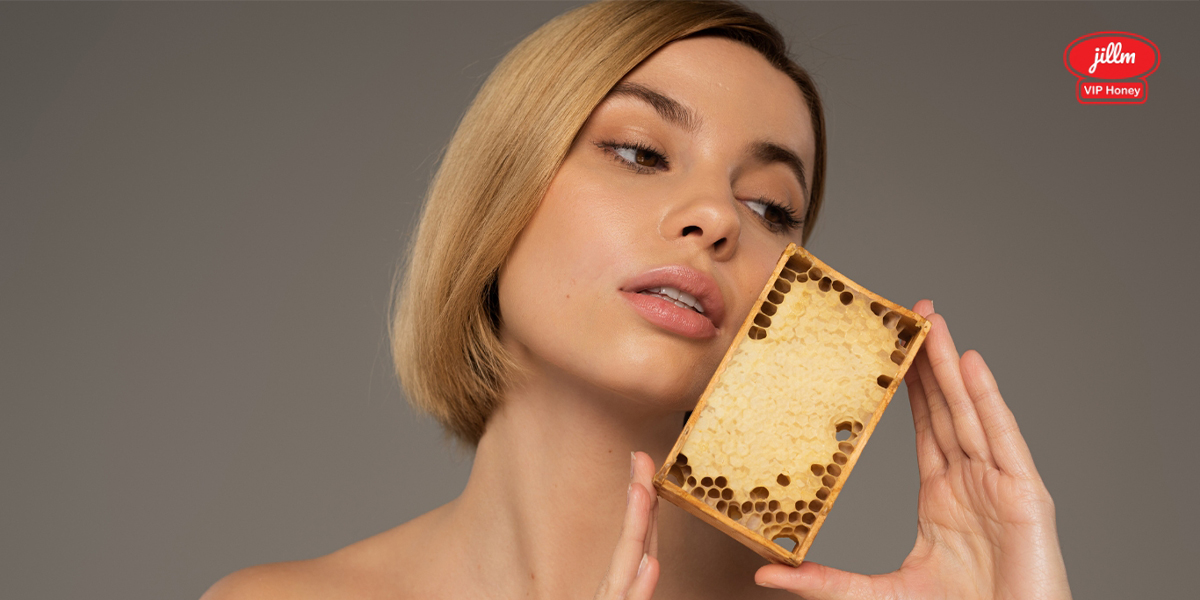
Honey’s natural properties offer several benefits that enhance your face's health and appearance. Here are some additional honey benefits:
Deep Moisturization
Honey is known for its ability to deeply hydrate the skin, making it a perfect choice for those seeking intense moisture.
- Long-lasting Hydration: Penetrates deeply to keep the face hydrated throughout the day.
- Prevents Dryness: Locks in moisture, ensuring your face remains soft and supple.
- Nourished Skin: Provides essential nutrients to keep skin healthy and vibrant.
Premature Aging
Combat signs of aging with honey’s natural anti-aging benefits that help maintain youthful face skin.
- Reduces Fine Lines: Reduces wrinkles and fine lines.
- Boosts Collagen: Encourages collagen production for firmer, plumper skin.
- Antioxidant Protection: Shields skin from free radicals that cause aging.
Gentle Exfoliation
Exfoliating your skin with honey removes dead cells, revealing a brighter complexion without irritation.
- Softens Skin: Gently sloughs away dead skin cells to leave skin smooth.
- Evens Skin Tone: Promotes a more even and radiant skin tone.
- Non-irritating: Suitable for sensitive skin, providing gentle exfoliation.
Sunburn Relief
Honey can be a soothing remedy for sunburned skin, calming irritation and aiding recovery.
- Calms Redness: Reduces redness and inflammation of sunburned skin.
- Supports Healing: Helps repair skin damage and speeds up recovery.
- Prevents Peeling: Keeps the skin moisturized to prevent peeling.
Honey's Side Effects On The Face
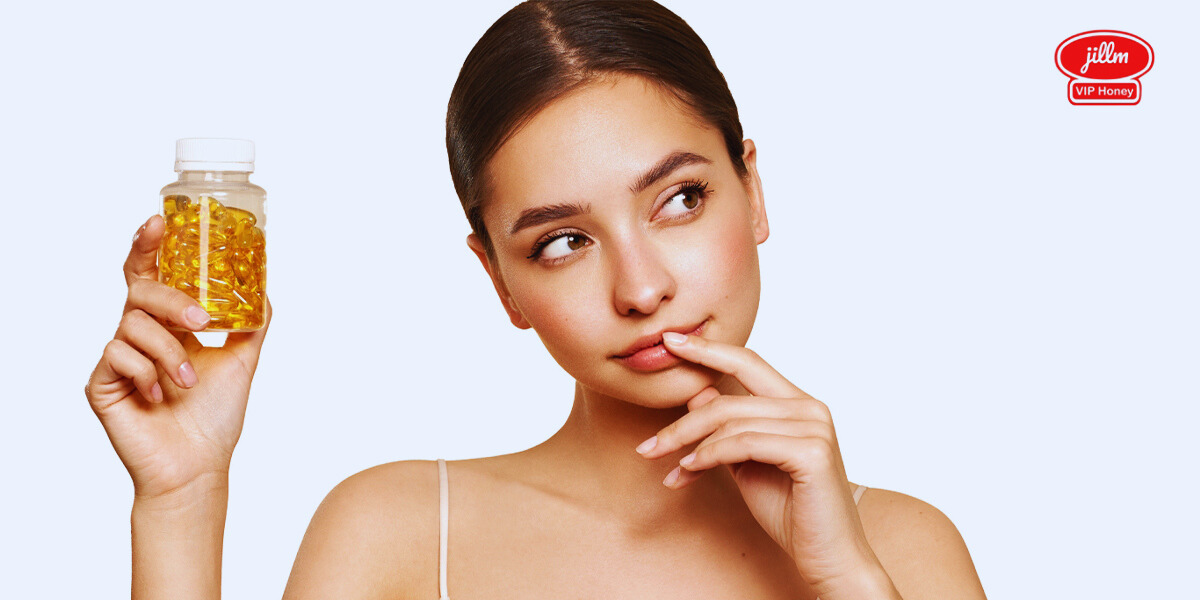
While honey is celebrated for its skincare benefits, it's important to be aware of potential side effects. Understanding these can help you use honey safely and effectively.
Allergic Reactions
Some people may experience allergic reactions to honey, especially if they are sensitive to pollen or bee products.
- Skin Irritation: Itching, redness, or swelling may occur in sensitive individuals.
- Severe Reactions: In rare cases, honey can cause more severe allergic responses.
- Know Your Allergies: Be aware if you have a history of allergies related to pollen or bee products.
Patch Test
Performing a patch test is a simple yet crucial step before applying honey to your face.
- Test First: Apply a small amount of honey to a skin patch, such as the inner wrist.
- Wait and Observe: Leave it on for 24 hours to check for adverse reactions.
- Safe Use: If no irritation occurs, using honey more broadly on the face is safe..
Conclusion
Honey face masks are a must-have for anyone looking to enhance their skincare routine naturally with this golden elixir. A versatile skincare ally, honey offers glowing skin, unclogging pores, deep hydration, and gentle exfoliation.
Its ability to fade scars, combat signs of aging, and soothe sunburned skin only adds to its impressive repertoire. So, why not invite this natural powerhouse into your beauty regimen?
By taking honey into your regular skincare routine, you’re opting for simple, effective, and nourishing care for which your skin will surely thank you. You will be amazed at how your complexion will transform with each application of honey's natural benefits.
FAQs
"If you choose to apply honey to your skin, the best way is by applying a light layer of honey to clean, dry skin and letting it sit for a short period. Usually 15 to 20 minutes before rinsing with lukewarm water," suggests Fabusiwa. Dr. Courneene agrees with the direct approach.

